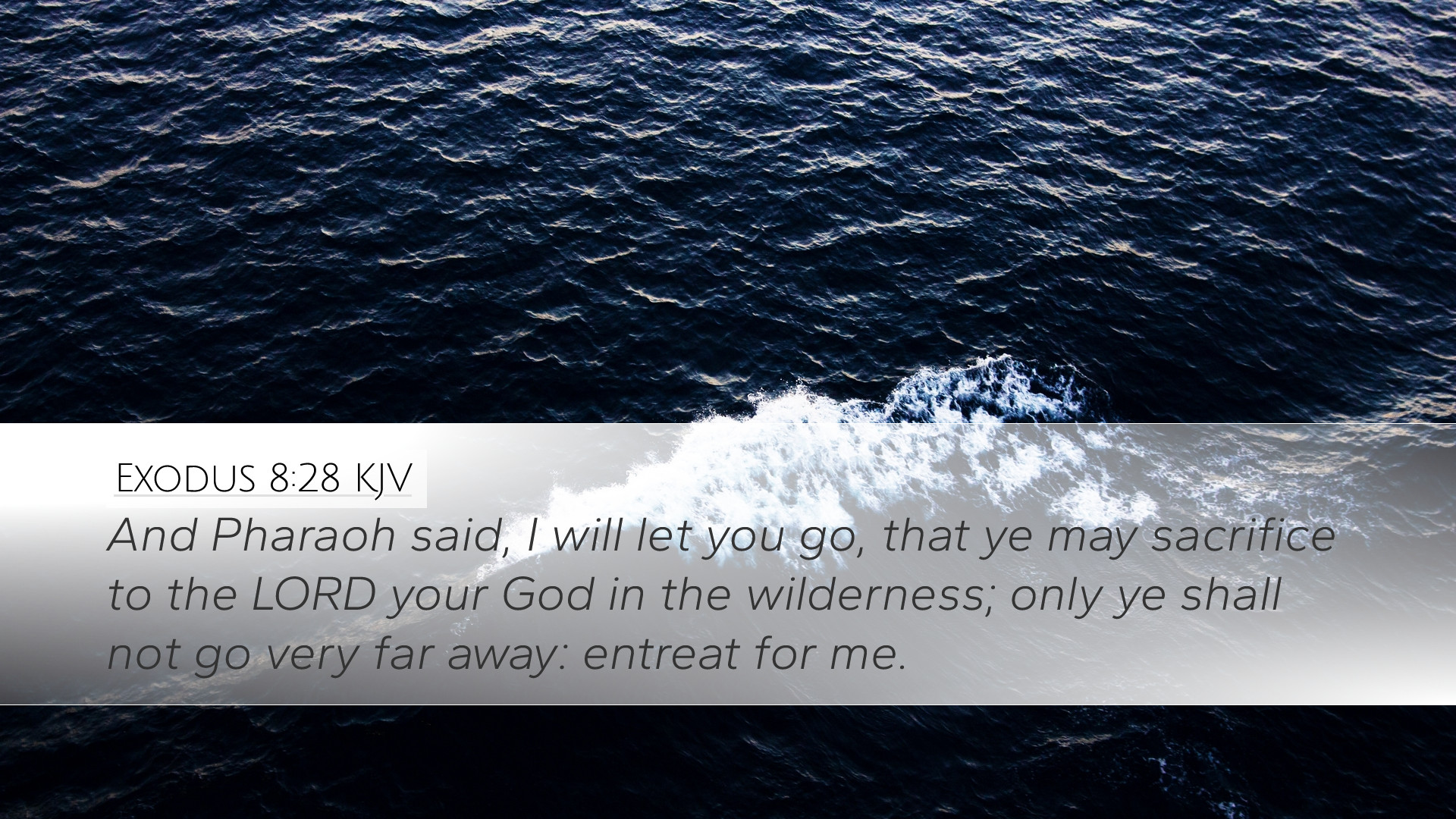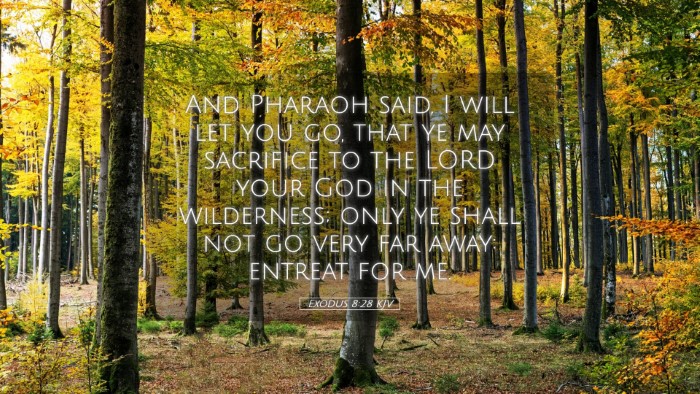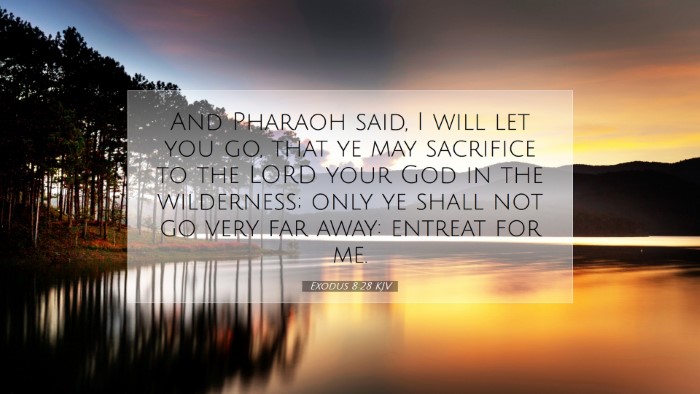Exodus 8:28 Commentary
Exodus 8:28 states: "And Pharaoh said, I will let you go, that ye may sacrifice to the Lord your God in the wilderness; only ye shall not go very far away: intreat for me."
This verse encapsulates the tense negotiations between Moses, Aaron, and Pharaoh during the plagues that befell Egypt. Pharaoh's promise to let the Israelites go to worship God may seem like a concession; however, it contains underlying themes of manipulation and half-heartedness that merit deeper examination.
Context and Background
The context surrounding Exodus 8:28 is critical for understanding the significance of Pharaoh's statement. The Israelites had been in bondage for several generations, and Moses had been chosen by God to lead them to freedom. The plagues served both as judgment against Egypt's gods and as a demonstration of God's power.
Pharaoh's Reaction to the Plagues
Each plague was a direct challenge to Egyptian deities, and Pharaoh's heart was hardened each time. Significantly, after the plague of frogs, Pharaoh exhibited a moment of contrition, offering a compromise to Moses. This tactic reflects the psychology of power; Pharaoh aimed to maintain control while appearing conciliatory.
Theological Implications
-
God's Sovereignty: The ongoing narrative illustrates God's supreme authority over Pharaoh and the Egyptians. The invitation to worship in the wilderness symbolizes a step towards liberation yet underlines Pharaoh's refusal to fully surrender to God's will.
-
Human Depravity: Pharaoh's intention to restrict the departure of the Israelites demonstrates the stubbornness of the human heart. While he claims to allow worship, his condition reflects an unwillingness to acknowledge God's absolute claim over his life and governance.
-
Prayer and Intercession: The latter part of the verse, "intreat for me," signifies the need for intercessory prayer. Pharaoh, though rebellious, recognizes the power of Moses’ relationship with God and seeks his intercession, acknowledging a higher power even amidst his stubbornness.
Insights from Commentators
Matthew Henry
Matthew Henry notes that Pharaoh’s willingness to negotiate reflects the duplicity often found in those who resist true surrender to God. His request for intercession also signifies a recognition of divine authority, albeit momentary. Henry emphasizes the critical lesson that mere acknowledgment of God’s power is insufficient; true repentance and obedience are what God desires.
Albert Barnes
Albert Barnes elaborates on Pharaoh's mindset, suggesting that his proposal to allow sacrifices only "not very far away" indicates a desire to maintain proximity to the Israelites while subtly controlling the situation. Barnes argues that this reflects a broader theological truth; humanity often seeks to maintain control over aspects of their lives while providing lip service to divine authority.
Adam Clarke
Adam Clarke offers a unique interpretation of Pharaoh’s plea. He posits that Pharaoh’s act of asking Moses to pray for him is indicative of his desperation in the face of calamity. Clarke highlights the irony that even in his oppression, Pharaoh yearns for relief through the very people he enslaved, demonstrating the complex interrelationships between oppressor and oppressed.
Practical Applications
-
Recognition of Authority: Leaders must understand the importance of recognizing divine authority in their lives and governance, just as Pharaoh had to confront the God of Israel.
-
The Nature of Compromise: This verse serves as a warning against superficial compromises with God. True worship demands complete surrender, rather than a negotiated distance from sin and idolatry.
-
The Power of Intercession: The verse underscores the importance of prayer and intercessory roles within the community of believers. Moses’ position as mediator serves as a model for how one can approach divine authority on behalf of others.
Conclusion
Exodus 8:28 presents a powerful interplay of human obstinance, the need for divine authority, and the call for true worship. The verse invites pastors, students, and scholars to reflect on their own responses to God’s commands and the nature of their freedom in Him. As we contemplate Pharaoh's request, let us examine our own hearts for areas where we may, knowingly or unknowingly, be negotiating with God rather than fully submitting to His will.


